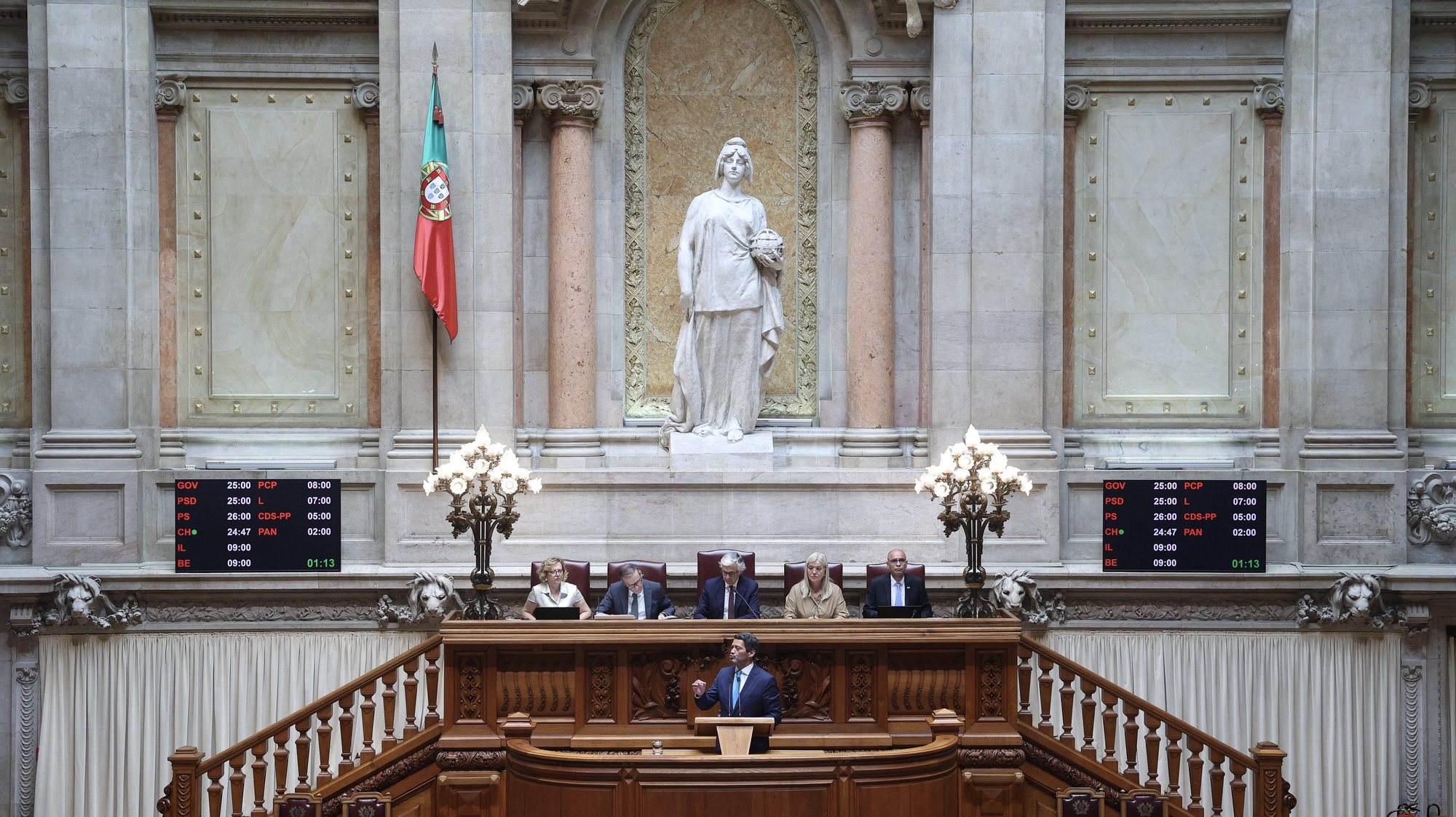PS, BE, PCP and Livre criticised on Thursday the measures announced by the Government for the economy, which the socialists considered isolated and warned that the reduction of the IRC “is very costly” and makes the negotiation of the next Budget difficult.
At the end of the plenary session of the Assembly of the Republic, almost all parties reacted in parliament to the package of 60 measures designated by the Government as the “Program to Accelerate the Economy”, approved this Thursday by the Council of Ministers, with IL praising the proposal to reduce the IRC, as did the CDS-PP, a party that supports the executive, together with the PSD.
The parliamentary leader of the PS, Alexandra Leitão, began by considering that The package announced by the Government “is a set of separate measures, most of which are very vague, not programmed or accounted for”, except for the proposal to reduce the IRC to 15% at the end of the legislature.
“The reduction of the IRC is deeply unfair and will not be effective in the economy. It is not something that companies demand as a priority, 40% of companies do not pay IRC, it will benefit the richest and most profitable companies,” he criticised, reiterating that this measure “deeply distances the PS from the Government.”
The socialist MP stressed that this measure “reduces at least 1.5 billion euros in tax revenue” annually, which will have consequences at the level of the welfare state.
“The government does not have an absolute majority, it says it wants to engage in dialogue, but we are systematically faced with very costly measures that will already represent an enormous burden for the next State Budget and will greatly reduce the possibilities of negotiation,” he warned, considering that measures like this are “a bad signal from the government” regarding this document.
For BE, coordinator Mariana Mortágua considered that this program seems to come “from the business confederations and will only benefit the largest companies”, which she believes will give “a huge tax exemption”.
“What is in this plan is a set of tax benefits for the country’s largest companies. The government insists on not discussing how Portugal should be more productive,” he said, regretting that the executive continues to “insist on an economy dependent on a single sector, tourism.”
In the same sense, the parliamentary leader of the PCP, Paula Santos said that we are facing “an operation that seeks to divert public resources from the State to large companies”.
“There are no measures for micro, small and medium-sized enterprises. What is needed is a focus on national production, on concrete measures to regulate energy prices, fuels and commercial leases,” he argued.
Free, Rui Tavares considered that the Government’s program “has zero” to boost the economysuggesting that it should be called a “package of tax breaks for those who already benefit the most”, criticising, for example, the reintroduction of the tax regime for non-habitual residents.
Like the PS, Livre considered that this package “will make the negotiation of the next State Budget difficult” because the Government will not have room to “follow the opposition’s proposals.”
IL MP Mário Amorim Lopes welcomed the fact that “finally” there are tax reduction measures, although less ambitious than those advocated by the party.
“Reducing the IRC is essential to attract more companies,” he said, criticising others, however, for believing that the State wants to “assume the role of helmsman” of the economy.
Also the parliamentary leader of the CDS-PP, Paulo Núncio welcomed the “Programme to accelerate the economy”, stating that “today is an excellent day for the Portuguese economy”.
“In particular, the CDS wishes to congratulate the Government on its proposal to gradually reduce the IRC rate to 15%. This measure is essential for more robust growth of our companies but is, above all, a fundamental measure to increase workers’ wages”He also praised the regime for attracting new talent and expressed the hope that they would be approved by parliament.
Source: Observadora
